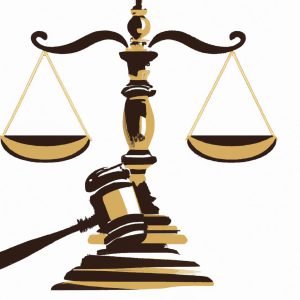In the intricate web of estate planning, the concept of reciprocal wills serves as a crucial cornerstone for ensuring the seamless transfer of assets and the protection of loved ones after one’s passing. As seasoned practitioners in the legal realm, Morgan Legal Group in New York City navigates the complexities of estate law with precision and expertise. Join us as we delve into the intricate world of reciprocal wills and uncover the key components that make them a vital tool in securing your legacy.
Understanding Reciprocal Wills in Estate Planning
When it comes to estate planning, understanding reciprocal wills is essential for ensuring your wishes are carried out effectively. Reciprocal wills are a set of wills typically created by spouses or partners that mirror each other’s provisions. This means that each person leaves their assets to the other in the event of their passing, with a plan in place for the ultimate distribution of assets upon the second person’s death.
Reciprocal wills can provide peace of mind for couples, ensuring that their assets are protected and passed down according to their wishes. It’s important to consult with an experienced estate planning attorney, like those at Morgan Legal Group in New York City, to ensure that your reciprocal wills are legally sound and effectively carry out your intentions. By creating reciprocal wills, you can have confidence that your loved ones will be taken care of and your legacy will be preserved.
Key Considerations When Establishing a Reciprocal Will
When establishing a reciprocal will, there are several key considerations that must be taken into account to ensure that your wishes are accurately reflected and legally binding. One of the most important factors to consider is choosing the right executor for your will. This individual will be responsible for carrying out your final wishes, distributing your assets, and settling any outstanding debts or liabilities.
- Choose a trustworthy and reliable executor
- Clearly outline your wishes and instructions in the will
- Consider any potential conflicts or disputes among beneficiaries
Additionally, it is crucial to carefully consider the distribution of your assets and how they will be divided among your beneficiaries. You may need to consult with a legal professional to ensure that your will complies with all applicable laws and regulations, and that your wishes are accurately reflected in the document.
Drafting Reciprocal Wills for Married Couples: Best Practices
When drafting reciprocal wills for married couples, it is essential to ensure that both parties are fully informed and involved in the process. Communication and transparency are key in creating a set of wills that accurately reflect the wishes and intentions of both spouses. Here are some best practices to consider:
- Joint Consultation: Schedule a joint consultation with an experienced estate planning attorney to discuss your options and goals as a couple.
- Identify Shared Objectives: Clearly outline your shared objectives and determine how you want your assets to be distributed in the event of one spouse passing away.
- Consider Contingencies: Plan for contingencies such as simultaneous deaths or changes in circumstances that may affect the distribution of your assets.
- Review and Update Regularly: It is important to review and update your reciprocal wills regularly to ensure they accurately reflect your current wishes and circumstances.
By following these best practices, you can create reciprocal wills that provide clarity, peace of mind, and security for both spouses. At Morgan Legal Group, our experienced estate planning attorneys are here to help guide you through the process of drafting reciprocal wills and other important estate planning documents. Contact us today to schedule a consultation and start planning for the future.
Avoiding Pitfalls and Ensuring Validity of Reciprocal Wills
For a reciprocal will to be valid and to ensure that it accurately reflects the wishes of both parties involved, it is important to take certain precautions and avoid common pitfalls. One key step is to ensure that each party has independent legal advice when drafting the wills. This helps to prevent any potential conflicts of interest and ensures that each individual’s interests are properly represented.
Another important consideration is to clearly outline the intentions of each party in the will and to carefully draft the document to avoid any ambiguities or misunderstandings. This can help to prevent disputes later on and ensure that the wishes of both parties are carried out as intended. Additionally, it is crucial to regularly review and update the reciprocal wills to account for any changes in circumstances, such as births, deaths, or changes in assets. By taking these steps and ensuring the validity of the reciprocal wills, you can help to protect the interests of both parties and ensure that their wishes are carried out according to their intentions.
| Tip 1 | Tip 2 |
|---|---|
| Obtain independent legal advice | Regularly review and update the wills |
Q&A
Q: What is a reciprocal will?
A: A reciprocal will is a legal document that allows two individuals, typically partners or spouses, to leave their assets to each other in the event of their death.
Q: How does a reciprocal will differ from a traditional will?
A: A traditional will allows an individual to designate beneficiaries to inherit their assets, while a reciprocal will involves both parties agreeing to leave their assets to each other.
Q: Are there any requirements for creating a reciprocal will?
A: Both parties must be of sound mind and legal age, and the document must be signed and witnessed according to state laws.
Q: Can a reciprocal will be changed or revoked?
A: Yes, a reciprocal will can be modified or revoked at any time as long as both parties agree to the changes.
Q: What happens if one party dies before the other without updating the reciprocal will?
A: In this case, the assets would typically pass to the surviving spouse or partner in accordance with the terms of the original reciprocal will.
Q: Are there any potential drawbacks to having a reciprocal will?
A: One potential drawback is that if the relationship ends or one party dies unexpectedly, it may be difficult to contest or change the terms of the reciprocal will without the other party’s consent.
Key Takeaways
In conclusion, reciprocal will is a powerful concept that allows individuals to make choices not only for themselves, but also for their loved ones. By considering the needs and desires of others, we can create a more harmonious and fulfilling future for all. So, the next time you think about your own will, don’t forget to also consider the reciprocal will of those closest to you. After all, true wealth is not measured in possessions, but in the love and care we show to one another. Thank you for reading and may your reciprocal will guide you towards a brighter tomorrow.
Reciprocal Will: Understanding the Power of Mutual Wills
When it comes to planning for the future, our minds may automatically think of creating a last will and testament to ensure our assets are protected and distributed according to our wishes after we are gone. However, there is another type of will that is equally important and often overlooked – the reciprocal will. In this comprehensive guide, we will delve into the concept of reciprocal wills, its benefits, and how to create one.
What is Reciprocal Will?
Reciprocal will, also known as mutual will, is a legal document created by two or more people, usually spouses or partners, in which they mutually agree to leave their assets to each other and upon the death of both parties, the assets will be distributed to their chosen beneficiaries. This type of will is especially popular among couples who do not have children together or have blended families.
While a traditional will can be changed or revoked at any time, a reciprocal will is legally binding and cannot be altered after the death of one party. This means that both parties are bound by the terms of the agreement even after the other has passed away. Therefore, it is imperative for both parties to fully understand and agree upon the terms of a reciprocal will before signing it.
Benefits of Reciprocal Will
One of the main advantages of a reciprocal will is that it allows couples to ensure that their assets are protected and distributed according to their wishes. By making a mutual agreement, both parties have peace of mind knowing that their loved ones will be taken care of and their assets will not end up in the wrong hands.
Moreover, reciprocal wills can also help to avoid family disputes and legal complications after the death of one party. In a traditional will, the assets would be solely in the hands of the surviving spouse/partner and they could choose to change the distribution of the assets, which may not align with the wishes of the deceased. With a reciprocal will, both parties are bound by the agreement and cannot make any changes, providing a sense of security and certainty.
Furthermore, a reciprocal will can also help minimize estate taxes, especially in cases where there are no children or the couple has a large estate. By leaving their assets to each other and then to their chosen beneficiaries, couples can minimize the tax burden on their estate.
How to Create a Reciprocal Will
Creating a reciprocal will is not a complicated process, but it does require careful consideration and the help of a legal professional. Here are the steps to follow when creating a reciprocal will:
1. Choose a trusted legal advisor: Start by finding a reputable and experienced legal advisor who specializes in wills and estate planning to ensure that your reciprocal will is valid and legally binding.
2. Discuss your wishes: Sit down with your partner and discuss how you would like your assets to be distributed after both of you have passed away. Be open and transparent about your wishes to avoid any future disputes.
3. Outline your assets: Make a list of all the assets that you would like to include in your reciprocal will, such as property, investments, bank accounts, life insurance policies, etc. It is important to provide as much detail as possible to avoid any confusion later on.
4. Choose beneficiaries: Decide on who will be your chosen beneficiaries after both parties have passed away. It is important to name alternate beneficiaries in case your initial choices are no longer alive.
5. Draft the will: Your legal advisor will assist you in drafting the reciprocal will, making sure that it is in accordance with all legal requirements and addresses all your wishes.
6. Sign the document: Once the will is ready, both parties should sign the document in the presence of two witnesses. The legal advisor and the witnesses should also sign the document to make it legally binding.
In Conclusion
A reciprocal will offers many benefits and can provide peace of mind for both parties, knowing that their loved ones will be taken care of and their assets will be distributed according to their wishes. However, it is important to note that a reciprocal will is not suitable for everyone, and couples should carefully consider all aspects before making a decision. Consult with a legal advisor to discuss your options and to ensure that your reciprocal will is properly executed. Remember, proper estate planning can help secure your legacy and protect the ones you love.





